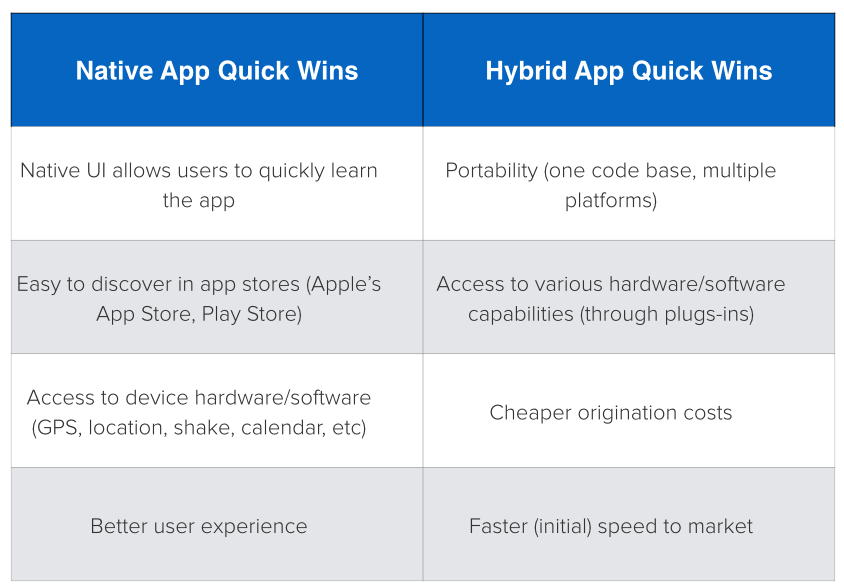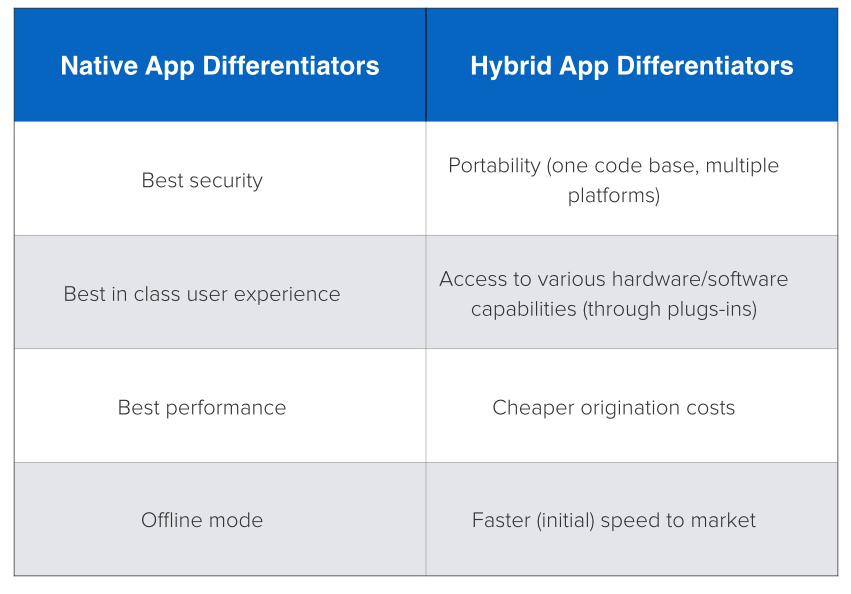Choose Your Weapon Carefully
So you’ve decided to take the plunge off the waterfall into the sky blue waters of starting an app business. You have this great idea, you’ve done your market research, you’ve budgeted your potential investment, now you just need to get started with the technology. You’re undoubtedly familiar with a handful of the platforms out there – iOS, Android, Windows, to name a few. If you’re a techie / nerd you’ve probably heard of Symbian, Ubuntu and even Blackberry. Side note, does anyone else miss the days when having a Blackberry was a huge status symbol? Those were the best days. Now my Crackberry is working its guts out as a paperweight on my desk.
When having a freelancer or team develop your app, choosing the correct technology is absolutely crucial to the app’s overall success. It’s not to say that making an error in judgement here will result it an ultimate demise of your app but it is very crucial to how the app is welcomed in the marketplace. So the million dollar question is….. “Do I build a native app or a hybrid app?”
Let’s get into some details about both for comparison. We’ve compiled info from credible sources across the internet to help break it down very simply for you:
Hybrid App Advantages – A quick overview 1

Hybrid applications are, at core, websites packaged into a native wrapper. They look and feel like a native app, but ultimately outside of the basic frame of the application (typically restricted to the controls/navigational elements) they are fueled by a company’s website. Basically, a hybrid app is a web app built using HTML5 and JavaScript, wrapped in a native container which loads most of the information on the page as the user navigates through the application (Native apps instead download most of the content when the user first installs the app). Usual suspects here are Facebook, Twitter, Instagram, your mobile banking app, etcetera.

If you listen closely to the industry chatter, here is why cross platform hybrid development sounds great for your app:
- Single code base across multiple platforms.
- Don’t have to update each app in the app store to wait for approvals.
- You can use your existing web talent and don’t need to bring on additional resources.
- Don’t need to do any API development since it’s all handled via the web.
A few questions to ask before you decide:2
How quickly do you want to take it to the market?
The time to market is dependent on various factors like the amount of features and number of resources you have. More resources typically mean that the budget will increase. If you want to launch the mobile app quickly to the market with limited resources, it would be wise to go with hybrid app approach, which will help to launch your app on multiple platforms in a short time.
Do you have separate budget for developers in iOS and Android (considering that they dominate the market share)?
If you can allocate separate budget for iPhone development and Android development resources, and you have liberty of time to take it to the market, then you don’t have to worry much; go for native app!
How often do you need to update your mobile app?
If you need to make frequent updates to your app, which means that the user will have to update from the App Store regularly (and not annoying them with that), then you should consider a hybrid app. The biggest advantage for hybrid app is that unless you have an integral change of the functionality in the app, all the content will be updated from web directly. This is one of the reasons that most Banks, News and Media apps in the market are hybrid. Hybrid apps also let you work out of a single code-base thereby helping the teams work more efficiently. In a Forrester Report 3 “The debate around web apps, hybrid apps, and optimized mobile website is nothing but industry jargon,” the report argues. A few years back there was a huge gap between hybrid and native. There definitely still is a gap but that gap is shrinking month by month with new technologies. If you are developing an app that isn’t expecting 100 Million active users, then there are some pretty good reasons to not go native (or at least at first). If you don’t have the deep pockets for 2 development teams, marketing costs, scalability, hiring a full work force, amongst other big ticket items to running an app comparable to Uber, Facebook, Twitter, then our recommendation is the hybrid app. Native developers might try to use performance or features as an excuse to not develop hybrid, but in reality, these two issues are disappearing every day and are almost non-existent. What a lot of people overlook is that they use a sample size of what their friends and family think about the app. Then use that feedback as something set in stone. “Oh my girlfriend said this is the coolest app of all time and they she’d definitely download it.” Great, you are still 999,998 downloads away from a 1 Million downloads (assuming you downloaded your app too =P). My point here is that the marketplace feedback will be the real results to how sustainable your app is for the longer term. Family and friends will want to be supportive, or sometimes even negative. We all know those people who don’t think anyone else’s ideas are good, or just want to pull them down to avoid the other person becoming successful, etc. Well, haters gonna hate so just roll with the punches. If you get haters mouthing off about your app, then just take that as a challenge you need to overcome to make your victory of success so much sweeter.
If you are serious about creating an app I can point you in the right direction with 2 possible options:
- ◊ We Are Polygon: If you are looking into creating an app, want to reduce costs and increase employee productivity for your company, create new revenue opportunities for your business, brand yourself or just want to attach a cool app idea to your name, We Are Polygon is worth checking out. Let me assure you, that they will take a more hands on detailed approach for determining your costs compared to those calculators. This takes into consideration, your budget, your needs, and feedback on what functions will actually make sense to be implemented into your app. Your app success is what drives their team, not a paycheck at the end of the day.
- ◊ Vault Innovation: If you are willing to put your money where your mouth is, have a huge vision on where you want to take your app company, and are willing to put in the work to take yourself to the top, Vault Innovation is your vehicle to get you there. Where you want to be the next Zuckerberg, disrupt the marketplace, or just have an itch to be an app entrepreneur Vault Innovation has the experience and creativity to lead startup projects and the expertise and resources to execute enterprise solutions.
- 1. http://www.ymedialabs.com/hybrid-vs-native-mobile-apps-the-answer-is-clear/
- 2. http://julyrapid.com/hybrid-vs-native-mobile-app-decide-5-minutes/
- 3. http://readwrite.com/2011/05/03/web_vs_native_mobile_app_forrester_says_do_both